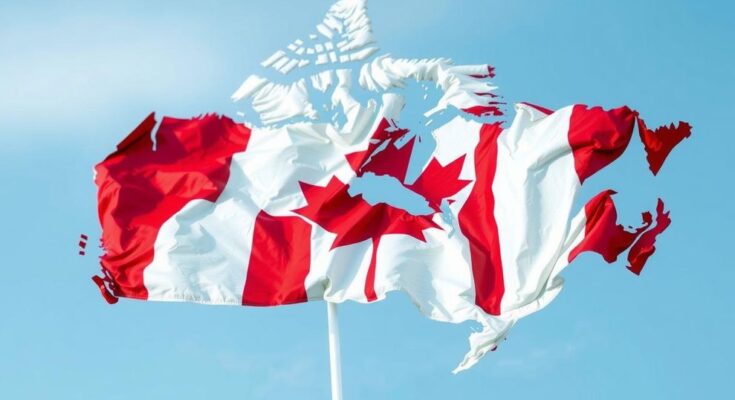Recent discussions surrounding Donald Trump’s proposal for Canada to become a 51st state suggest profound electoral implications favoring the Democratic Party. With a population of 41 million, Canada would secure 54 House seats, altering the balance of power significantly against Republicans. Historical voting data indicates that approximately two-thirds of Canadians would likely support Democratic candidates, complicating Republican prospects in future elections.
Recent statements made by Donald Trump regarding potential American annexation of Canada spur discussion on profound implications for U.S. politics. Contrary to his anti-interventionist image, Trump’s rhetoric echoes earlier imperialistic ideologies. Analyzing the ramifications of Canada becoming a 51st state, it becomes evident that Democrats would significantly benefit from the shift in political landscape. Canada, with its population of approximately 41 million, could secure around 54 House seats in Congress, surpassing states like California and skewing power heavily in favor of the Democratic party due to voting trends observed in Canadian elections.
If Canadians were to integrate into American party politics, the likelihood of two-thirds voting Democratic aligns poorly with Republican interests. Historical voting trends reveal that since the Conservative Party of Canada’s unification in 2003, left-leaning parties have averaged 63% of the vote, leaving the Republicans with a decidedly diminished representation. In the Senate, this would further amplify the Democratic influence, complicating Republican chances of holding a majority.
The Electoral College system would also be notably affected. With Canada likely leaning Democratic, its 56 electoral votes could potentially swing key presidential elections. This constitutes a crucial alteration of electoral dynamics, allowing Democrats greater electoral strength. Thus, Trump’s annexation remarks may not only disregard Canada’s distinct political fabric but also downplay the strategic alliances that underpin American influence globally. Ultimately, the broader implications of such unilateral proposals necessitate thoughtful consideration of the intertwined histories and political contexts of both nations.
The commentary reflects on Donald Trump’s proposals for the annexation of various territories, including Canada. Such considerations evoke historical sentiments associated with American imperialism while neglecting the significant implications these ideas would have on the political landscape of the United States. The analysis focuses on how integrating Canada, with its unique political culture and electoral behaviors, would likely alter the balance of power in American national politics, favoring the Democratic Party significantly. This context illuminates why such proposals could be strategically detrimental to the Republican Party’s future elections.
In conclusion, should Canada hypothetically become the 51st state within the United States, the electoral implications would be overwhelmingly favorable to the Democratic Party. Historical voting patterns in Canada suggest that a majority of its citizens would lean Democratic, translating to substantial losses for the Republican Party across various electoral mechanisms, including the House of Representatives and the Senate. Thus, Trump’s remarks may merely represent a disregard for the distinct political identity and history of Canada, undermining the potential for cooperative engagement between the two nations.
Original Source: nevadacurrent.com




